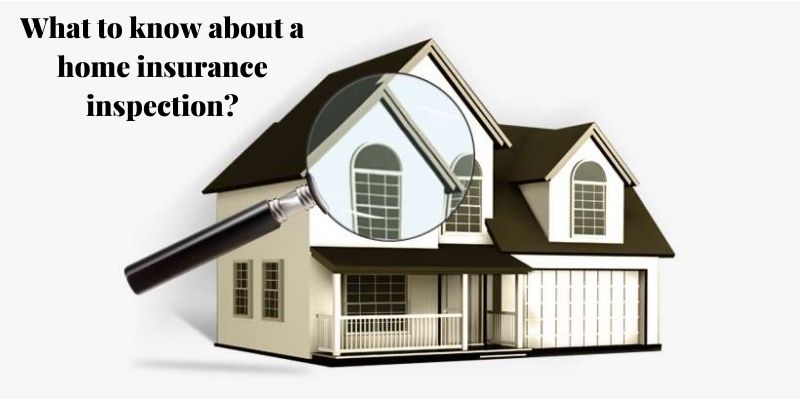4 Question About Homeowners Insurance Without Inspection
What is homeowners insurance without inspection? For prospective homeowners or current homeowners with insurance policies, a house inspection seeks to detect potential safety concerns and exposures. The findings of the analysis can be used by buyers of new homes to bargain for a lower asking price, and insurance companies can use the data to require policyholders to make changes that reduce the chance of loss.
When writing a new insurance policy or when a homeowner has made improvements to the house, home insurers frequently ask for an insurance home inspection. Failure to abide with the findings of the insurance home inspection may result in modifications, restrictions, or cancellation of the policy. The insurance editorial staff at Bankrate outlines why getting homeowners insurance may need a house inspection. In this areticle, alltin.net will discuss 4 question about homeowners insurance without inspection.
Can I acquire insurance without having my house inspected? – Homeowners insurance without inspection
A home inspection is frequently necessary in order to purchase a homeowners insurance policy. In order to determine your premiums, insurance companies must comprehend the level of risk they are taking on by covering your property. A home inspection can be the best approach for them to evaluate this danger. In addition to helping insurers predict the possibility that you will make a claim, a house inspection is strongly advised by most insurance professionals when buying real estate as it could enable you to find hidden problems that would otherwise go unnoticed by you.

For coverage, not all insurers need a house inspection. A house inspection for insurance may be more likely in the following situations:
- Living in an older home
- Switching carriers
- In the past ten years, no inspection has been done.
- Without one, replacement value for some things cannot be determined.
An inspection may also be required by other parties involved in your real estate transaction. Before approving your mortgage loan, the lender you are working with can require that a house inspection be done. In most cases, a home inspection is not necessary when selling your house. To ascertain the value of the house, sellers are typically required to order an appraisal.
Can I purchase homes insurance using an appraisal? – Homeowners insurance without inspection
An appraisal may be accepted by your homeowners insurance company in lieu of a formal inspection, but this is entirely at the carrier’s discretion. The likelihood that the insurance company will accept an appraisal in place of a home inspection typically increases with the appraisal’s recentness and level of detail. However, evaluations are typically much less thorough in identifying potential problems than inspections and do not serve the same goal. You will probably need an inspection rather than an appraisal conducted, particularly if the house you intend to buy is particularly old.

Since they normally have to pay for an appraiser to examine the home before putting it on the market, the seller will be aware of this information if your insurance provider does accept an appraisal. Home inspections carried out as part of the home buying process, however, are financed by the buyer. Homebuyers frequently make offers on properties subject to a home inspection, giving them the legal right to renege on the deal if the house inspection falls short of their expectations.
What to know about a home insurance inspection? – Homeowners insurance without inspection
Home inspections are thorough analyses of your house or other property that seek to find any hidden problems that might be present. Insurance companies can assess the level of risk they would take on if they offered you a homes insurance policy by conducting a home inspection. Inspectors typically analyze important sections of the home using the 4-point inspection method during a home insurance examination. This property inspection’s four main areas of concentration are as follows:
- Roof
- Plumbing
- Electrical
- Heating & Cooling Equipment (HVAC)
These goods have a specific lifespan, and insurers can use the data from the house inspection to estimate the probability that you’ll make a claim soon. However, house inspectors lack the training required to conduct a thorough investigation of any required repairs. For instance, you will probably need to engage a professional plumber to actually identify the precise repair needed to address the issue if the house inspector flags your plumbing system as needing maintenance.

If the house you want to buy doesn’t pass the 4-point inspection, you probably won’t be able to buy homeowners insurance until the problems are fixed. Any costs you incur for the work to be finished, such as replacing an HVAC system to pass the house inspection, are your obligation and not the insurance company’s or inspector’s.
What else will be inspected? – Homeowners insurance without inspection
A 4-point house inspection is not as thorough as a whole-home inspection, so it is not always advised that buyers rely on it when choosing a home to buy. Instead, a whole-home inspection might be a better choice because these assessments look at a lot more parts of the house compare homeowners insurance without inspection, such as:
- Chimneys: The likelihood is that inspectors will search for any gaps or loose bricks that could let moisture, bugs, or smoke escape, increasing the risk of a fire.
- Water and mold damage: A thorough house inspection can detect black mold, dampness in the basement, foundation problems, and more.
- Pests: Your home inspector will typically look for any evidence that termites, rodents and other unwanted pests exist in the home.
- Lead-based paint and asbestos: Older homes were built with these hazardous elements, and your whole-home inspector may find them while performing their evaluation.




